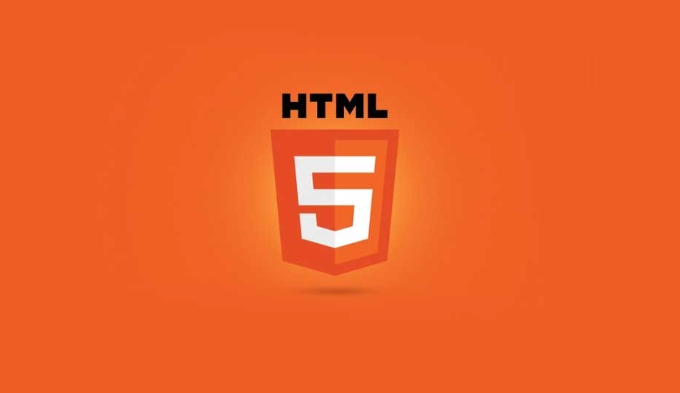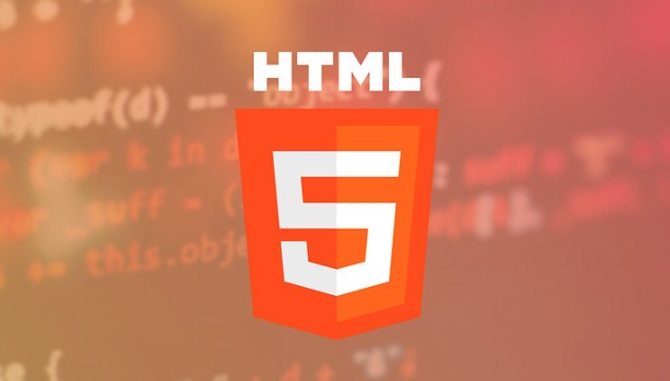 Web Front-end
Web Front-end
 H5 Tutorial
H5 Tutorial
 Implementing drag and drop functionality using the HTML5 Drag and Drop API.
Implementing drag and drop functionality using the HTML5 Drag and Drop API.
Implementing drag and drop functionality using the HTML5 Drag and Drop API.
Jul 03, 2025 am 01:43 AMThe core steps to implement HTML5 drag and drop function include: 1. Set the element draggable="true" attribute to enable drag; 2. Set dataTransfer data in the dragstart event; 3. Call e.preventDefault() in the dragover event to allow placement; 4. Get data and perform operations in the drop event; at the same time, pay attention to the default behavior of the image, cross-domain restrictions, mobile compatibility, and custom UI feedback.

The key point in implementing HTML5 drag and drop function is to understand its event process and data delivery mechanism. The HTML5 native Drag and Drop API provides basic support, but it needs to deal with several key links to make it work.

Set draggable elements
First, you have to tell the browser which elements can be dragged. This is done by setting draggable="true" property. This property is suitable for most HTML elements, such as <div> , <code><img src="/static/imghw/default1.png" data-src="https://img.php.cn/upload/article/000/000/000/175147818372221.jpeg" class="lazy" alt="Implementing drag and drop functionality using the HTML5 Drag and Drop API." > , etc. 
For example:
<div draggable="true">Drag me to try</div>
If you just set draggable to true , you think you can drag it, and you may be disappointed. Because by default, elements like <div> will not have obvious visual feedback or behavioral changes even if they are set to draggable. It must be coordinated with JavaScript drag and drop events to truly achieve interaction.

Handle drag and drop events
The entire drag-and-drop process involves multiple events, the most important of which are:
-
dragstart: Triggered when starting dragging -
dragover: Continuously triggered when the dragged element moves over the target area -
drop: Triggered when the mouse is released in the target area
The usual practice is to set dragged data in dragstart , block default behavior in dragover to allow placement, and do the actual operation in drop .
The sample code is as follows:
document.querySelector('.draggable').addEventListener('dragstart', function(e) {
e.dataTransfer.setData('text/plain', 'This is the dragged data');
});
document.querySelector('.droptarget').addEventListener('dragover', function(e) {
e.preventDefault(); // The default behavior must be blocked, otherwise the drop cannot be triggered
});
document.querySelector('.droptarget').addEventListener('drop', function(e) {
const data = e.dataTransfer.getData('text/plain');
console.log('Received data:', data);
}); Note that dataTransfer is an object used to pass data during drag and drop, and can pass text, URLs, HTML fragments, etc.
Frequently Asked Questions and Precautions
Although the HTML5 DnD API is very convenient, it is easy to get stuck in use:
Default behavior when dragging and dropping images : If you are dragging an image, the image link will be opened by default (especially in Chrome). To avoid this, you can call
e.preventDefault()indragstart.Cross-domain issues : When dragging content from other pages or external applications, some data formats may be limited, especially the base64 data for the image may not be available.
Compatibility issues : Although modern browsers support it, mobile support is slightly weak, especially on iOS sometimes there are strange behaviors.
Missing style feedback : The native API does not provide UI feedback such as highlighting, disable status when dragging, which requires manual class name or style modification to implement.
Let's summarize
The core steps in implementing HTML5 drag and drop function include setting draggable attributes, listening and handling dragstart , dragover and drop events, and paying attention to the data delivery method and browser compatibility. Although basic, this set of APIs is flexible enough to suit most simple drag and drop scenarios. For more complex interactions, it may also be necessary to combine third-party libraries to enhance the experience.
Basically all is it, not complicated but it is easy to ignore details.
The above is the detailed content of Implementing drag and drop functionality using the HTML5 Drag and Drop API.. For more information, please follow other related articles on the PHP Chinese website!

Hot AI Tools

Undress AI Tool
Undress images for free

Undresser.AI Undress
AI-powered app for creating realistic nude photos

AI Clothes Remover
Online AI tool for removing clothes from photos.

Clothoff.io
AI clothes remover

Video Face Swap
Swap faces in any video effortlessly with our completely free AI face swap tool!

Hot Article

Hot Tools

Notepad++7.3.1
Easy-to-use and free code editor

SublimeText3 Chinese version
Chinese version, very easy to use

Zend Studio 13.0.1
Powerful PHP integrated development environment

Dreamweaver CS6
Visual web development tools

SublimeText3 Mac version
God-level code editing software (SublimeText3)

Hot Topics
 What is Microdata? HTML5 Explained
Jun 10, 2025 am 12:09 AM
What is Microdata? HTML5 Explained
Jun 10, 2025 am 12:09 AM
MicrodataenhancesSEOandcontentdisplayinsearchresultsbyembeddingstructureddataintoHTML.1)Useitemscope,itemtype,anditempropattributestoaddsemanticmeaning.2)ApplyMicrodatatokeycontentlikebooksorproductsforrichsnippets.3)BalanceusagetoavoidclutteringHTML
 Microdata in HTML5: The Key to Better Search Engine Ranking
Jun 12, 2025 am 10:22 AM
Microdata in HTML5: The Key to Better Search Engine Ranking
Jun 12, 2025 am 10:22 AM
MicrodatasignificantlyimprovesSEObyenhancingsearchengineunderstandingandrankingofwebpages.1)ItaddssemanticmeaningtoHTML,aidingbetterindexing.2)Itenablesrichsnippets,increasingclick-throughrates.3)UsecorrectSchema.orgvocabularyandkeepitupdated.4)Valid
 Audio and Video : What about browser compatibility?
Jun 11, 2025 am 12:01 AM
Audio and Video : What about browser compatibility?
Jun 11, 2025 am 12:01 AM
Browser compatibility can ensure that audio and video content works properly in different browsers by using multiple formats and fallback strategies. 1. Use HTML5 audio and video tags and provide multiple format sources such as MP4 and OGG. 2. Consider automatic playback and mute strategies and follow the browser's policies. 3. Handle cross-domain resource sharing (CORS) issues. 4. Optimize performance and use adaptive bit rate streaming media technologies such as HLS.
 Audio and Video: HTML5 VS Youtube Embedding
Jun 19, 2025 am 12:51 AM
Audio and Video: HTML5 VS Youtube Embedding
Jun 19, 2025 am 12:51 AM
HTML5isbetterforcontrolandcustomization,whileYouTubeisbetterforeaseandperformance.1)HTML5allowsfortailoreduserexperiencesbutrequiresmanagingcodecsandcompatibility.2)YouTubeofferssimpleembeddingwithoptimizedperformancebutlimitscontroloverappearanceand
 Audio and Video: can i record it?
Jun 14, 2025 am 12:15 AM
Audio and Video: can i record it?
Jun 14, 2025 am 12:15 AM
Yes,youcanrecordaudioandvideo.Here'show:1)Foraudio,useasoundcheckscripttofindthequietestspotandtestlevels.2)Forvideo,useOpenCVtomonitorbrightnessandadjustlighting.3)Torecordbothsimultaneously,usethreadinginPythonforsynchronization,oroptforuser-friend
 Adding Audio and Video to HTML: Best Practices and Examples
Jun 13, 2025 am 12:01 AM
Adding Audio and Video to HTML: Best Practices and Examples
Jun 13, 2025 am 12:01 AM
Use and elements to add audio and video to HTML. 1) Use elements to embed audio, make sure to include controls attributes and alternate text. 2) Use elements to embed video, set width and height attributes, and provide multiple video sources to ensure compatibility. 3) Add subtitles to improve accessibility. 4) Optimize performance through adaptive bit rate streaming and delayed loading. 5) Avoid automatic playback unless muted, ensuring user control and a clear interface.
 What is the purpose of the input type='range'?
Jun 23, 2025 am 12:17 AM
What is the purpose of the input type='range'?
Jun 23, 2025 am 12:17 AM
inputtype="range" is used to create a slider control, allowing the user to select a value from a predefined range. 1. It is mainly suitable for scenes where values ??need to be selected intuitively, such as adjusting volume, brightness or scoring systems; 2. The basic structure includes min, max and step attributes, which set the minimum value, maximum value and step size respectively; 3. This value can be obtained and used in real time through JavaScript to improve the interactive experience; 4. It is recommended to display the current value and pay attention to accessibility and browser compatibility issues when using it.
 How can you animate an SVG with CSS?
Jun 30, 2025 am 02:06 AM
How can you animate an SVG with CSS?
Jun 30, 2025 am 02:06 AM
AnimatingSVGwithCSSispossibleusingkeyframesforbasicanimationsandtransitionsforinteractiveeffects.1.Use@keyframestodefineanimationstagesforpropertieslikescale,opacity,andcolor.2.ApplytheanimationtoSVGelementssuchas,,orviaCSSclasses.3.Forhoverorstate-b





